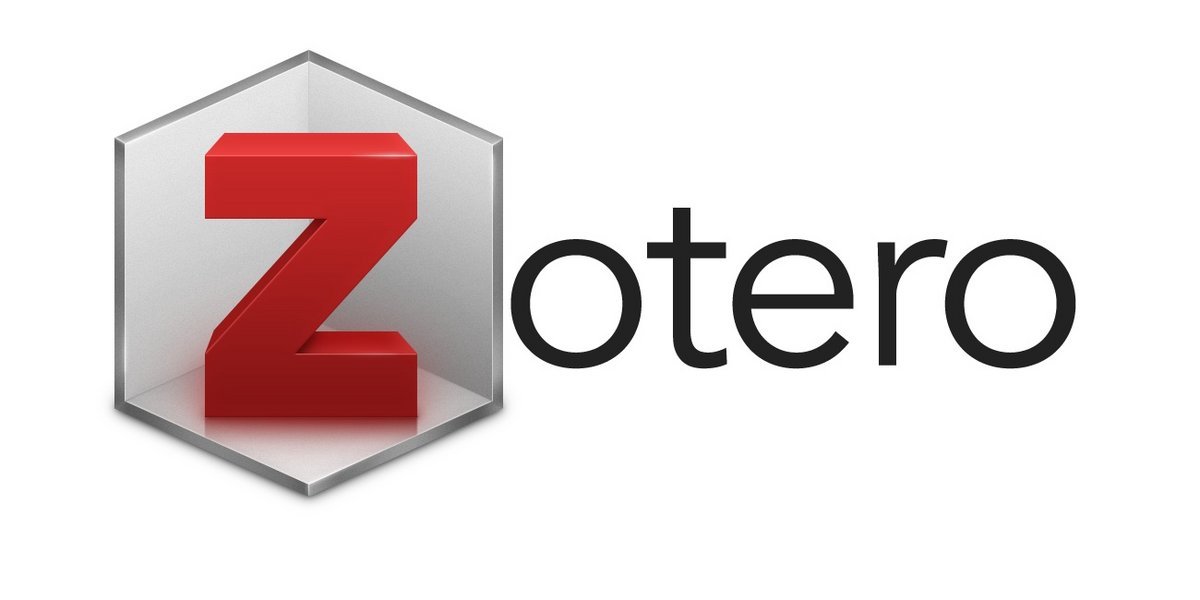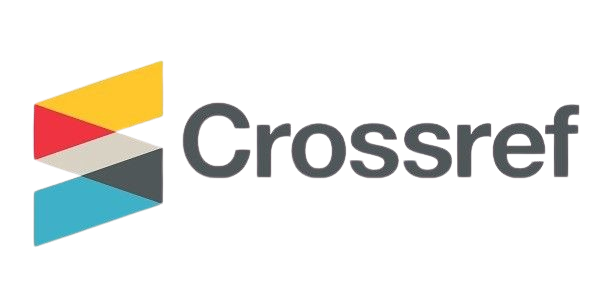Peningkatan Kompetensi Guru PAI dalam Menghadapi Revolusi Digital
Enhancing Islamic Education (PAI) Teachers' Competence in Facing the Digital Revolution
DOI:
https://doi.org/10.70757/kharismatik.v1i2.17Keywords:
digitalization, digital literacy, Islamic education, professional competenceAbstract
The application and utilization of digital technology in the social sphere have given rise to new ways for the community to absorb religious information. Currently, the ability for critical evaluation (tabayun) is essential for everyone to possess when absorbing religious information, including students, in order to avoid misunderstandings that are not in line with the teachings of Islam in Indonesia. Enhancing the professional competence of Islamic religious education (PAI) teachers in facing this digital revolution is highly necessary to build the filtering capabilities of students when consuming digitally-based religious content. The objectives of this research are: (1) to assess the professional competence of PAI teachers in facing the digital revolution, (2) to explore the methods that should be used to enhance their professional competence, and (3) to identify the obstacles to improving professional competence in facing the digital revolution and propose solutions. The research approach employed in this study is a qualitative case study method, while data collection techniques involve interviews based on researcher-prepared guidelines and observations. The findings from the research indicate that there are three fundamental aspects that need improvement in relation to enhancing professional competence in facing the digital revolution: (1) PAI teachers should enhance their knowledge about digital technology products, (2) PAI teachers should deepen their understanding of the digitalization of religious teachings, and (3) PAI teachers should improve their comprehension of the character of Islamic teachings in Indonesia.
Keyword: Professional, Competence, Teacher Islamic Religious Education (PAI), Digital Revolution
ABSTRAK
Penerapan dan pemanfaatan teknologi digital dalam ruang lingkup sosial melahirkan cara baru bagi masyarakat dalam menyerap informasi keagaamaan, pada saat ini kemampuan tabayun mutlak harus dapat dimiliki oleh semua orang dalam menyerap informasi keagaamaan termasuk siswa agar terhindar dari pemahaman-pemahaman yang tidak sesuai dengan karakter ajaran Islam di Indonesia. Peningkatan kompetensi profesional guru PAI dalam menghadapi revolusi digital ini sangat diperlukan untuk membangun kemampuan filterisasi peserta didik dalam mengkonsumsi konten-konten keagamaan yang berbasis digital. Tujuan dari penelitian ini adalah (1) mengetahui kompetensi profesional guru PAI menghadapi revolusi digital (2) meneliti metode yang harus digunakan untuk meningkatkan kompetensi profesional (3) Menggali dan menemukan kendala-kendala peningkatan kompetensi profesional dalam menghadapi revolusi digital beserta solusinya. Metode pendekatan yang dilakukan dalam penelitian ini adalah metode case study pendekatan kualitatif, sedangkan teknik pengumpulan data yang dilakukan oleh peneliti yaitu dengan menggunakan teknik wawancara berdasarkan pedoman wawancara yang peneliti telah buat dan observasi. Hasil temuan yang peneliti dapatkan dari penelitian menunjukan bahwa ada 3 hal mendasar yang yang harus ditingkatkan berkaitan dengan peningkatan kompetensi profesional dalam menghadapi revolusi digital, (1) guru PAI harus meningkatkan pengetahuannya tentang produk-produk dari teknologi digital (2) guru PAI harus meningkatkan pemahamannya tentang fenomena digitalisasi ajaran, dan (3) guru PAI harus meningkatkan pemahamannya terkait karakter pemahaman ajaran Islam di Indonesia.
Keyword: Kompetensi, Professional, Guru PAI, Revolusi digital
References
Afrizal, M. A. (2015). Metode Penelitian Kualitatif Sebagai Upaya Mendukung Penggunaan Penelitian Kualitatif Dalam Berbagai Disiplin Ilmu. Jakarta: Rajawali Press.
Andini, R. D. (2021). Strategi pemimpin dalam digital leadership di era disrupsi digital. Al-Irsyad: Jurnal Pendidikan Dan Konseling, 11(1), 58–72.
Anwar, F., Pajarianto, H., Herlina, E., Raharjo, T. D., Fajriyah, L., Astuti, I. A. D., Hardiansyah, A., & Suseni, K. A. (2022). Pengembangan Media Pembelajaran “Telaah Perspektif Pada Era Society 5.0.” Tohar Media.
Arini, A., & Umami, H. (2019). Pengembangan pembelajaran pendidikan agama Islam melalui pembelajaran konstruktivistik dan sosiokultural. Indonesian Journal of Islamic Education Studies (IJIES), 2(2), 104–114.
Astuti, S. (2021). Strategi peningkatan literasi digital dalam pembelajaran pendidikan agama Islam di SMKN 3 Metro [PhD Thesis, IAIN Metro]. http://repository.metrouniv.ac.id/id/eprint/4449/
Daulay, H. H. P. (2016). Pemberdayaan Pendidikan Agama Islam di Sekolah. Prenada Media.
Denizulaiha, D. (2018). Peran Guru Sekolah Dasar dalam Pembelajaran di Era Teknologi Digital. Prosiding seminar nasional program pascasarjana Universitas PGRI Palembang. https://jurnal.univpgri-palembang.ac.id/index.php/Prosidingpps/article/view/1887
Fatmawati, I. (2021). Peran Guru Dalam Pengembangan Kurikulum Dan Pembelajaran. Revorma: Jurnal Pendidikan dan Pemikiran, 20–37. https://doi.org/10.62825/revorma.v1i1.4
Fonna, N. (2019). Pengembangan revolusi industri 4.0 dalam berbagai bidang. Guepedia.
Hidayat, U. S. (2021). Urgensi Penguatan Pendidikan Karakter Dalam Menyiapkan Generasi Emas 2045: Strategi Membangun Generasi Cerdas, Berkarakter dan Berdaya Saing di Abad 21. Nusa Putra Press.
Indrawan, I. (2019). PROFESIONALISME GURU DI ERA REVOLUSI INDUSTRI 4.0. Al-Afkar : Manajemen pendidikan Islam, 7(2), 57–80. https://doi.org/10.32520/afkar.v7i2.255
Irvani, A. I. (2019). HUBUNGAN KEMAMPUAN SELF-DIRECTED LEARNING DAN PROBLEM SOLVING SISWA SMP MELALUI PEMBELAJARAN BERBASIS MASALAH. Journal of Teaching and Learning Physics, 4(1), 28–33. https://doi.org/10.15575/jotalp.v4i1.3792
Jamin, H. (2018). Upaya meningkatkan kompetensi profesional guru. At-Ta’dib: Jurnal Ilmiah Prodi Pendidikan Agama Islam, 19–36.
Mahbuddin, A. N. G. (2020). Model Integrasi Media dan Teknologi dalam Pembelajaran PAI. Al-Mudarris (Jurnal Ilmiah Pendidikan Islam), 3(2), 183–196. https://doi.org/10.23971/mdr.v3i2.2312
Marwiji, M. H., Hasanah, A., & Arifin, B. S. (2023). Student Character Education Model Development in the Era Industry 4.0. Edumaspul: Jurnal Pendidikan, 7(2), 2734–2744.
Masturoh, I. (2018). Upaya Guru Pendidikan Agama Islam dalam Pembinaan Siswa Bermasalah (Studi Kasus Di SMPN 1 Siman Ponorogo) [PhD Thesis, IAIN Ponorogo]. http://etheses.iainponorogo.ac.id/4607/1/Indah%20Masturoh%20%28210314222%29.pdf
Moleong, L. J. (2018). Metodologi penelitian kualitatif. PT Remaja Rosdakarya.
Mulyasa, H. E. (2021). Implementasi kurikulum 2013 revisi: Dalam era industri 4.0. Bumi Aksara.
Pambudi, M. A. (2022). Strategi guru dalam meningkatkan literasi digital pada Siswa. Jurnal Inspirasi Manajemen Pendidikan, 10(03), 636–646. https://doi.org/10.32520/afkar.v7i2.255
Patandean, Y. R., & Indrajit, R. E. (2021). Flipped classroom: Membuat peserta didik berpikir kritis, kreatif, mandiri, dan mampu berkolaborasi dalam pembelajaran yang responsif. Penerbit Andi.
Pujiono, A., Kanafi, K., & Farida, M. (2022). Media Sosial sebagai Sumber Belajar bagi Generasi Z. Regula Fidei: Jurnal Pendidikan Agama Kristen, 7(2), 252–262.
Puspitasari, N., & Yusuf, R. (2022). Peran pendidikan agama Islam terhadap pembentukan karakter religius peserta didik. Atta’dib Jurnal Pendidikan Agama Islam, 3(1), 57–68. http://dx.doi.org/10.30863/attadib.v3i1.2565
Qomar, M. (2005). Epistemologi pendidikan Islam: Dari metode rasional hingga metode kritik. Erlangga. https://books.google.com/books?hl=id&lr=&id=dXwnu_Y_n2EC&oi=fnd&pg=PR9&dq=Jika+kualitas+pendidikan+diabaikan,+maka+akan+muncul+generasi+yang+lemah+secara+intelektual,+spiritual,+maupun+sosial,+yang+pada+akhirnya+membuat+bangsa+tersebut+sulit+bersaing+dengan+negara-negara+maju&ots=PUQGD5lX_v&sig=x2V3YBixH-2wD8OJDTSlPuYxm_s
Rachmadtullah, R., Setiawan, B., Wasesa, A. J. A., & Wicaksono, J. W. (2022). Monograf Pembelajaran Interaktif dengan Metaverse. Cv. Eureka Media Aksara.
Rosenberg, J. M., & Koehler, M. J. (2015). Context and Technological Pedagogical Content Knowledge (TPACK): A Systematic Review. Journal of Research on Technology in Education, 47(3), 186–210. https://doi.org/10.1080/15391523.2015.1052663
Sa’diyah, T. (2022). Penerapan Pembelajaran Pendidikan Agama Islam Dalam Membentuk Karakter Pribadi Yang Islami. KASTA: Jurnal Ilmu Sosial, Hukum, Agama, Budaya Dan Terapan, 2(3), 148–159. https://doi.org/10.58218/kasta.v2i3.408
Sumual, F. J., & Palempung, F. F. (2021). Kompetensi Sosial Guru Pendidikan Agama Kristen dan Motivasi Belajar Siswa. Lentera Nusantara, 1(1), 48–60.
Susilo, A., & Sarkowi, S. (2018). Peran guru sejarah abad 21 dalam menghadapi tantangan arus globalisasi. Historia: Jurnal Pendidik Dan Peneliti Sejarah, 2(1), 43–50. https://doi.org/10.17509/historia.v2i1.11206
Syahroni, S., Al Faris, P., & Andri, P. (2021). PENDIDIKAN ISLAM DALAM ERA REVOLUSI DIGITAL (REVOLUSI INDUSTRI 4.0 DAN SOCIETY 5.0). Online Prosiding Pascasarjana UIN Sulthan Thaha Saifuddin Jambi, 1(1), 324–337.
Taraju, A. R., Nurdin, N., & Pettalongi, A. (2022). Tantangan dan strategi guru menghadapi era revolusi industri 4.0. Prosiding Kajian Islam Dan Integrasi Ilmu Di Era Society (KIIIES) 5.0, 1(1), 311–316.
Untari, S., Maisyaroh, M., Chusniyah, T., Saputra, M., Nurcahyo, H., & Choiri, I. (2020). Kolaborasi tripusat pendidikan dalam penataan budaya sekolah berbasis pembudayaan nilai Pancasila untuk membangun siswa berkarakter. CV AE Media Grafika.
Downloads
Published
How to Cite
Issue
Section
Citation Check
License
Copyright (c) 2023 Kharismatik : Jurnal Ilmu Pendidikan

This work is licensed under a Creative Commons Attribution-ShareAlike 4.0 International License.
Authors who publish articles in Kharismatik agree to the following terms:
- Authors retain copyright of the article and grant the journal right of first publication with the work simultaneously licensed under a CC-BY-SA or The Creative Commons Attribution–ShareAlike 4.0.
- Authors are able to enter into separate, additional contractual arrangements for the non-exclusive distribution of the journal's published version of the work (e.g., post it to an institutional repository or publish it in a book), with an acknowledgment of its initial publication in this journal.
- Authors are permitted and encouraged to post their work online (e.g., in institutional repositories or on their website) prior to and during the submission process, as it can lead to productive exchanges, as well as earlier and greater citation of published work (See The Effect of Open Access).













